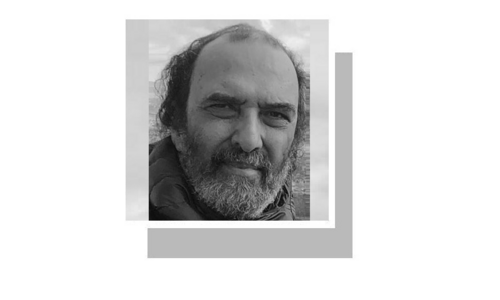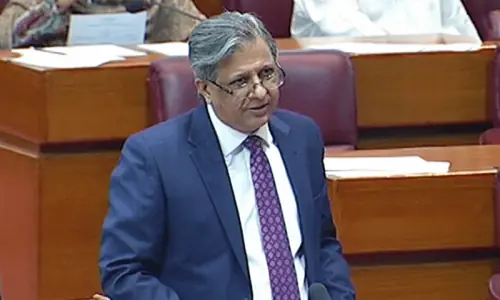AS Bashar al-Assad boarded a plane for exile in Moscow, the police state his family had ruled for over five decades swiftly crumbled.
The Syrian strongman’s opponents have pledged to build a ‘new’ Syria, but it remains to be seen whether the country’s new rulers will be able to build an inclusive, democratic state. While Mr Assad was able to hold off the armed opposition since the 2011 civil war erupted, indeed gaining the upper hand with Russian and Iranian help, the swiftness with which the Syrian Arab Army collapsed in the face of a rebel assault led by Hayat Tahrir al-Sham was stunning.
Today, HTS — a ‘reformed’ radical outfit once associated with Al Qaeda — is in a position to be the leading power broker in Syria, though there are also other claimants to the throne of Damascus.
It was largely Mr Assad’s hubris that led to the downfall of his regime. The ex-president failed to learn lessons from the fate of other Arab strongmen — Saddam Hussein, Muammar Qadhafi, Hosni Mubarak — who met unedifying ends. If he had negotiated a peaceful transfer of power with the moderate Syrian opposition, tens of thousands of innocent lives lost in this bloody conflict could have been saved. But external factors were also at play in Bashar al-Assad’s ouster.
The Americans had long dreamed of regime change in Damascus, and on Sunday morning that dream came true. Israel, moreover, is quite pleased to see the back of Mr Assad, as Benjamin Netanyahu lauded the event as a “historic day”. On the other hand, Russia has lost perhaps its closest ally in the Arab world, whereas a central pillar of Iran’s ‘Axis of Resistance’ has fallen.
Looking to the future, after the euphoria subsides, the victors of this conflict will have to build a functioning administration. Large numbers of Syrians within the country and the diaspora are ecstatic, as many of them suffered under Mr Assad’s autocratic rule. Yet, unless a viable post-Assad state emerges, these celebrations will be short-lived.
The aim should be a democratic state where all of Syria’s religions, sects and ethnic groups can live in freedom. But there are real dangers of rival factions fighting over power, and warlords running statelets along the post-Qadhafi Libyan model.
A nightmare scenario is also possible, with the more extreme, sectarian factions within the Syrian opposition seizing power, and succeeding where the self-styled Islamic State group failed. This would have a devastating impact on the region and the world.
Equally important is the need for external actors to respect Syria’s sovereignty. Already, Israel has occupied land in the Golan Heights, while Tel Aviv and the US have been separately bombing targets inside Syria. Such destabilising activities must cease immediately as Syria tries to rebuild.
Published in Dawn, December 10th, 2024






























